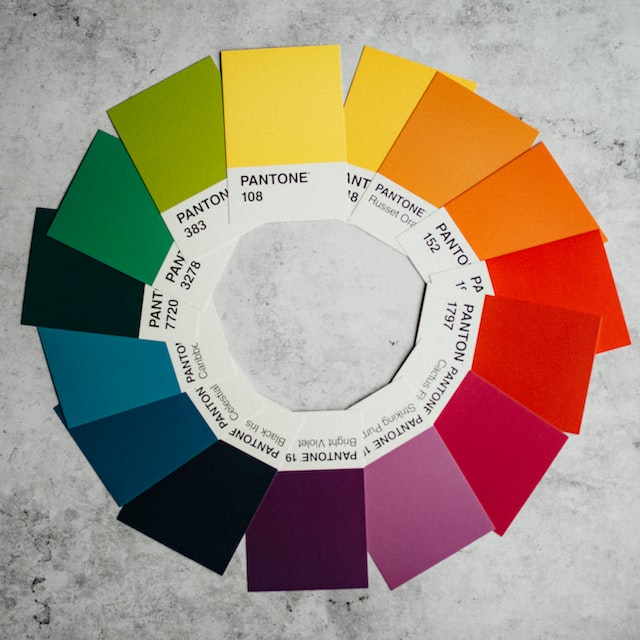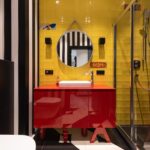Have you been dreaming of becoming an interior designer for quite some time now but don’t know how to make it a reality? Working in the world of interior design can be incredibly rewarding: from expressing yourself through your work to bringing joy and comfort into people’s lives by providing them with beautiful homes.
Becoming an interior designer isn’t easy, though. It takes a lot of knowledge and dedication to become successful in this line of work, so before taking that plunge into the world of interiors, you should ask yourself a few questions. Here is what you need to consider when considering if pursuing interior design is right for you.
1. Do you have a creative eye for colour, texture and design?

Becoming an interior designer requires creativity and an eye for colour, texture, and design. One crucial step to determine if a career in interior design is right for you is to ask yourself questions about your creativity. Do you have the ability to imagine creative solutions for spaces? Can you envision design features that are unexpected yet still meet the needs of the user? Can you take existing resources and repurpose them into something new and beautiful? Have you ever been praised for your enthusiasm when bringing life and creativity into any space? If your answer to these questions is yes, then becoming an interior designer may be the right path for you.
2. Do you possess strong communication skills?

Becoming an effective interior designer requires the ability to communicate effectively and clearly. It is important to ask yourself if you have the capability to communicate professionally with clients, collaborate with other professionals in the design field, work alongside contractors and vendors, and discuss product specs both verbally and on paper.
Good communication skills are a must to be successful in this field – from understanding your client’s vision to clearly explaining your ideas – having strong communication abilities will help ensure that all aspects of a project run smoothly. If you feel confident about your ability to express yourself verbally and through writing, you surely possess the necessary communication skills required for a career as an interior designer.
3. What are the building codes and standards in your area?
Knowing and understanding your area’s building codes and standards is key to becoming an interior designer. Without a full understanding of these important rules and regulations, designing a space can become costly or even difficult to do at times. Designers should learn the typical codes and standards in their area, as some may differ greatly from region to region.
It’s also important to stay up-to-date by checking with local government offices to make sure you know of any changes that have been recently enacted, as this could help keep your projects compliant and legal from start to finish.
4. Do you have a firm understanding of materials, architecture and planning?

To become an interior designer, it is essential to have a firm understanding of materials, architecture, and planning, whether you’re working on a modern city apartment or a Mediterranean-style villa. The success of any interior design project will drastically depend on how well the designer knows their materials and can create a balanced plan. An effective plan will consider using space and lighting to create an aesthetically pleasing living environment.
Additionally, an aspiring designer needs to be well-versed in different architectural styles so that the right pieces can be used when designing a home or office building. Without knowledge of materials, architecture and plans, it would be nearly impossible for any interior designer to create a successful end result.
5. Do you have an eye for detail?
Becoming an interior designer requires having an eye for detail. After all, the details make a space unique and truly special. A great interior designer needs to be able to envision a space and how its different pieces might come together to create a stunning visual experience. They must also have the ability to think three-dimensionally, taking into consideration aspects of texture, colour, light, furniture arrangements, and other elements that can help tie a room together. It may sound daunting, but if you ask yourself whether you have an eye for detail, you can begin building the necessary skills and knowledge to succeed in this creative field.
6. Do you understand ergonomics?
Interior designers must understand ergonomics to create an efficient and user-friendly design. Ergonomics is the science of how people interact with their environment, incorporating physical, cognitive and organizational components. It involves using space wisely, ensuring the furniture pieces are adjustable for multiple users and that physical activity can be incorporated into a room without sacrificing comfort or style.
A competent designer must understand how furniture affects posture, which materials will provide the best ergonomic performance for which activities and even how to make selecting a colour scheme easier for those with sensory processing issues. Becoming familiar with ergonomics is essential for interior designers looking to create functional and aesthetically pleasing spaces.
7. Are you staying on top of changing technologies?
As an Interior Designer, staying up to date with rapidly evolving technologies is essential. Technologies like 3D printing and Virtual Reality allow us to create truly innovative designs, which is especially useful when clients want their workspaces or personal homes to stand out in unique and exciting ways.
Learning new software, operating various design software, and understanding how technology can be utilized to craft the boldest of designs are essential skills one must have if one wants to rock this profession! So take the time to ask yourself if you are keeping up with the advancements in technology so that you can stay on top of your game as an interior designer.
8. Have you managed multiple projects before?
Thinking about becoming an interior designer? Have you managed multiple projects before? This simple question can tell you a lot about whether this profession is the field for you. A successful interior designer needs to be able to prioritize their tasks and manage numerous projects at once, often with many different clients’ wishes in mind. If you already have experience managing several concurrent projects professionally or just as part of your home life or hobbies, then the skills and mindset required for this career may already come naturally to you.
On the other hand, if juggling multiple demands seems like a challenge that you would struggle with, it might be worth taking some time to consider if pursuing a career in interior design is truly the right fit for your talents and ambitions.
9. Have you handled a budget before?
Before deciding whether or not you want to become an interior designer, it is essential to ask yourself if you have handled a budget before. A successful interior designer must be able to not only design a beautiful space but also account for the costs associated with its construction. Are those skills that you possess? If so, interior design might be the right field for you!
With the right combination of creative talents and fiscally responsible decision-making skills, you could be part of the exciting world of renovating spaces into stunning masterpieces. It all starts with examining your experience with budgeting – if it’s a strong point of yours, you may just find yourself in a fulfilling career as an interior designer.
10. Can you market yourself as an interior designer?
As an aspiring interior designer, one of the most critical questions you must ask yourself is whether or not you can effectively market yourself. Becoming a successful interior designer takes massive amounts of dedication and hard work, so you must have the promotional skills to get your creative vision out there. From cultivating relationships with potential clients to learning about modern technology, there are many avenues for marketing your interior design projects. It’s all about reaching out to those interested in a unique style, showing them how their space could look after completion, and getting feedback on the various designs you come up with.
All of this requires a deep understanding of online and offline communication strategies that can help build your reputation as a reliable interior designer. Evaluating your marketing capabilities will put you ahead of the competition and bring success much faster.
FAQs
Which qualifications should an interior designer have?
An interior designer should have a comprehensive set of qualifications to be successful in their role. First and foremost, they must possess an education in interior design or a related field along with a formal design certification such as the NCIDQ or LEED credentials. It is also important for them to have excellent knowledge of how humans interact with physical spaces and knowledge of furniture-making techniques, construction techniques, computer-aided design (CAD) software, regulations for the building profession and more.
In addition, certain soft skills such as strong communication, problem-solving and people management will also be necessary for an interior designer to stay relevant and successful in today’s ever-changing world.
What’s the best way to learn interior design?
Learning interior design can be a challenging yet rewarding experience. Like many hands-on professions, getting your hands dirty is the best way to learn how to decorate living spaces. Start by taking measurements of different spaces within your home and sketching what they look like now. Then, gain inspiration by looking at various design magazines, websites, or television shows featuring top designs.
Once you have an idea of the makeover you want to achieve, start small with just one room with easily accessible pieces that you can rearrange without any major construction work. Make sure not to overwhelm yourself with too much information initially; instead, use experimentation and creativity to get comfortable with interior design basics like lighting, colour balance, and furniture selection. With enough practice, anyone can master the art of interior design for their own space!
Conclusion
So, do you think interior design is the field for you? Consider these questions and be honest with yourself in your answers. And remember, if you’re not 100% sure yet, that’s OK! Interior design is a huge field with many facets, so it definitely takes some time to figure out if it’s the right fit for you. If you’re still on the fence, consider shadowing an interior designer or taking some classes to get a better feel for what the job entails. Good luck with whatever decision you make!







